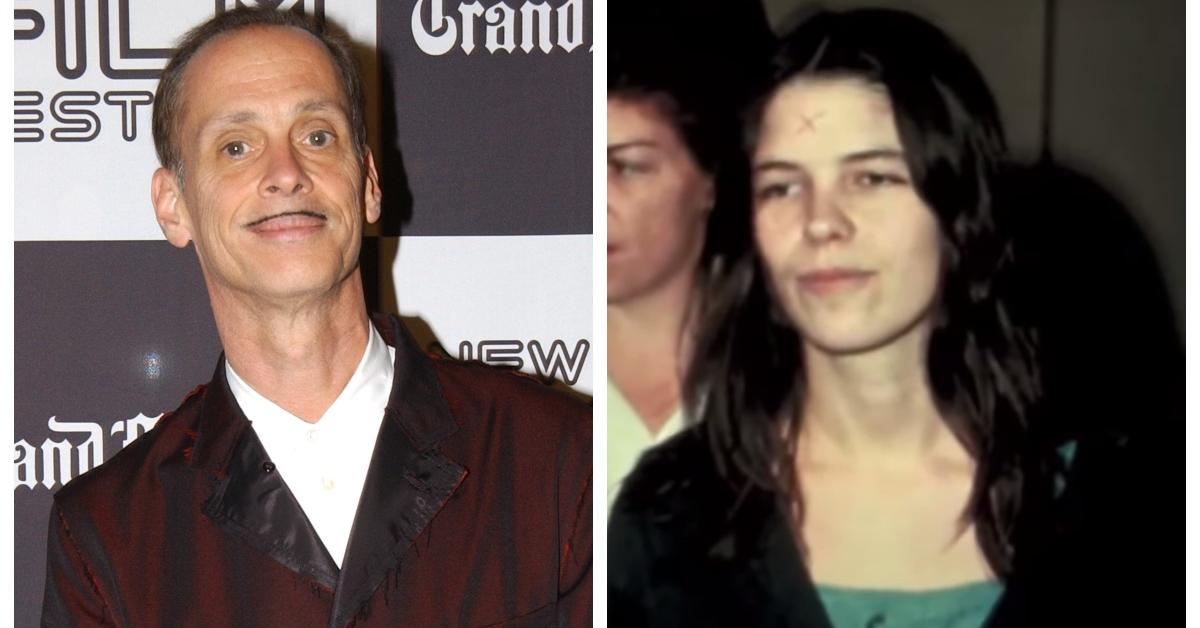Former Manson girl Leslie Van Houten and filmmaker John Waters have been friends for years. If you know anything about him, it makes total sense.
What is family? The meaning of that word has shifted and slid around like oil in a frying pan. Is family a feeling you have, or is it the people legally obligated to care for you though that’s hardly the case every time. You are born into them and sometimes taken out of them, and when you’re old enough you can choose them. Sometimes you’re indoctrinated into them, like former Manson girl Leslie Van Houten.
Article continues below advertisement
On Aug. 9, 1969, Van Houten along with other members of the Manson family, broke into the Los Angeles home of Rosemary and Leno LaBianca. In a drug-fueled haze, the 19-year-old aided in stabbing Rosemary to death. She would eventually be convicted of first degree murder and sentenced to life in prison with a possibility of parole. In July 2023, Van Houten was finally released. During her time in prison, filmmaker John Waters became her friend. Here’s what we know about the friendship between Leslie Van Houten and John Waters.
Article continues below advertisement
What did Leslie Van Houten do? John Waters was obsessed with her story.
Like most people alive in the late 1960s, Waters became obsessed with the Manson trial and the Manson girls in particular. In his book Role Models, the “filth” director spoke of how much of his work was inspired by this time. “Heavily influenced, and actually jealous of their notoriety, I went back to Baltimore and made Pink Flamingos which I wrote, directed and dedicated to the ‘Manson girls,’ ‘Sadie, Katie, and Les,'” he said.
Later, Waters would befriend Charles “Tex” Watson, whose drug-addled mind never fully recovered. Watson was present and responsible for both the Tate and LaBianca murders. “I would hitchhike to the California Men’s Colony in San Luis Obispo from either Los Angeles or San Francisco to visit him and I wrote about our times, rather inappropriately and with little insight, in my book Shock Value,” Waters admitted.
Article continues below advertisement
In 1985, a decade after Waters saw Watson for the last time, Rolling Stone asked him if he would interview Manson. Instead, Waters begged the outlet to let him speak with Van Houten. To him, she “always seemed the one that could have somehow ended up making movies with us instead of running with the killer dune-buggy crowd.” When approval was given, Waters wrote a letter to the former Manson girl who had at that point been in prison for nearly 15 years.
Article continues below advertisement
A slow but steady friendship began between Van Houten and Waters.
When Van Houten responded to Waters, she told him that he would have to be patient. She was in “no hurry” to make new friends. He began writing about his films and his “frustration in trying to get the sequel to Pink Flamingos made.” He said, “She wrote me back about, what else? Prison. Living in a cell ‘the size of an average bathroom with another person.'” Soon, Van Houten said she would “enjoy meeting” Waters who immediately got on a plane to California.
“On our first visit, Leslie, who looked then, and still does, very much like actress Hilary Swank, explained that she had no interest in being in Rolling Stone because of what she had done,” wrote Waters in Role Models. “She was ashamed of it, not proud, and hoped that one day the terrible notoriety would fade.” That of course never happened, and only grew as new generations discovered the Manson crimes and the genre of true crime took on new life in the form of documentaries and podcasts.
Article continues below advertisement
Van Houten and Waters were both equally inspired by one another.
As Waters continued to visit Van Houten, their friendship deepened which allowed him to witness her recovery. “I feel good about you because I do not believe you would harm me,” she wrote in a letter two years after they first met. “You make me feel good about myself … I need that … not to feel like a freak. I’d like to propose that this year we become closer friends. You inspire me to do something with myself.”
In turn, Van Houten’s influence on Waters was equally as galvanizing. She inspired him to “believe that if you wait long enough and work hard enough on your damaged psyche you can eventually come out of it with some kind of self-respect and mental health.” Prison isn’t designed to help people. Inmates better themselves despite being there, not because of it. Van Houten is one of those individuals, and Waters was part of this journey.
Source: https://www.distractify.com/p/leslie-van-houten-john-waters
